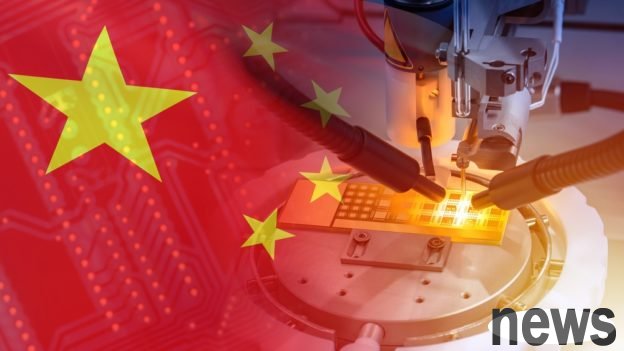The British Financial Times disclosed on the 21st that Beijing has blocked domestic technology companies from purchasing the AI (AI) processor H20 specially designed by NVIDIA for China. The fire line is a chip export control rhetoric considered b...

The British Financial Times disclosed on the 21st that Beijing has blocked domestic technology companies from purchasing the AI (AI) processor H20 specially designed by NVIDIA for China. The fire line is a chip export control rhetoric considered by Chinese officials to be "too bullying."
Financial Times reports that many Chinese supervisory agencies have taken action to prevent domestic technology companies from purchasing H20.
Sources revealed that the China Central Network Security and Information Technology Commission Office (National Information Technology), the National Development and Reform Commission (National Development and Reform Commission), and the Ministry of Industry and Information Technology (Ministry of Industry and Information Technology) and other institutions are due to the fact that Howard Lutnick said last month that he took action.
The Chinese government banned NVIDIA (NVIDIA) from selling H20 chips to China in April, and then lifted the ban last month. On July 15, the day after the H20 export control order was lifted, Lutnik said: "We will not sell them our best products, we will not sell the second best, or even the third best." He also revealed: "We will sell more (products) to China so that their developers can rely on the technology stacking in the United States. This is the thinking behind it."
22 Some senior Chinese people said that some high-level people believe that these statements are "too deceptive" and prompted decision makers to set up laws to restrict domestic technology companies from purchasing H20. According to people familiar with the matter, Chinese technology operators have been slow to purchase or cut H20 orders.
The Chinese Supervisor's stimulation shows how high-performance chips promote the development of AI and become the core of the two largest economic tensions in the world, the United States and China.
These actions have caused a blow to NVIDIA, and NVIDIA executive chief Huang Renxian only visited Beijing last month. Sources revealed that Huang Rensha’s trip was welcomed, which also allowed NVIDIA to obtain sufficient orders from Chinese customers and notify production partners of Taiwan power to restart the H20 production line.
People familiar with the matter close to the China-level decision-making level said: "Luitnik's comments give the Supervisor Alliance more reasons to expand the use of Chinese local chips."
The China Internet Information Network issued the so-called "window guidance" to large technology companies such as Ziji Jump and Alibaba, asking them to stop purchasing H20 from NVIDIA on the grounds of national security doubts.
On July 31, the Internet Commission called NVIDIA high-level for a meeting on the grounds of "serious security issues". In a statement, the Internet Information Office stated that US AI experts revealed that NVIDIA chips have functions such as positioning and tracking, and can be closed remotely. NVIDIA strongly rejects this statement.
Information sources revealed that the Ministry of Industry and Information Technology, the Telecommunications and Software Supervision Machinery, also conducted informal communication with the head of Chinese science and technology industry, reiterating the position of the Internet. The Commission responsible for promoting technology-independent development and reform issued guidance opinions, requiring technology companies to stop purchasing all NVIDIA chips, including H20.
The intervention of the Internet has put more pressure on the Chinese technology giant. Even if these instructions are still informal, if they are sanctioned by the supervisory authority, it will have a great impact on the daily operations of the company.
Although some U.S. officials and congressmen are seeking to strengthen chip export restrictions, U.S. President Donald Trump said that in addition to the H20, he may allow a reduced version of NVIDIA Blackwell chip to be exported to China.
Sources pointed out that some Chinese technology businessmen are slugging H20 orders because they are also watching whether the Blackwell chips built by China will be lifted.
The report said that a person who recently talked with the Beijing Decisionists revealed that some Decision Officials are promoting a complete ban on foreign reasoning chips; such chips account for the bulk of AI demand.
Due to the shortage of domestic chip supply in China, this policy is unlikely to be implemented in the short term. Beijing hopes that after several advanced production lines are started next year, this problem can be solved.
Extended reading: The United States claims China only wins NVIDIA's "fourth best" chips, everything is rare earth Reduce the dependence of the United States! China's strong local enterprises must adopt 50% of domestic chips China has taken pressure and asked Alibaba and the font to jump to explain why to buy NVIDIA H20 chips B300 Cut version? NVIDIA is creating stronger AI chips for China, with performance exceeding H20